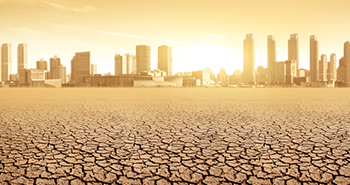Sustainable logistics: How is it shaping the future?
Sustainability has become one of the most important trends in logistics, as in all sectors. Minimising the environmental impact of logistics operations and reducing the carbon footprint is becoming a necessity and a competitive advantage for companies. Sustainable logistics encompasses practices such as energy efficiency, low-emission vehicles and green supply chains.
Key elements of sustainable logistics
• Green warehouse management: The design of warehouse buildings and the use of equipment are optimised to achieve energy efficiency. Solar and other renewable energy sources are widely used.
• Low-emission transport vehicles: Electric and hybrid vehicles reduce fuel consumption and contribute to lower carbon emissions. Sustainability can also be achieved by using smaller vehicles for transport and more environmentally friendly methods such as rail.
• Optimisation through digitalisation: Digital technology can reduce fuel consumption by identifying the most efficient routes in logistics processes.
Artificial intelligence and big data analytics minimise the carbon footprint by avoiding unnecessary movements in transport.
Circular economy and importance of recycling
• Recycling and waste management: Increasing the recycling rate of packaging materials used in logistics processes is an important step towards sustainability. The circular economy model exploits opportunities for reuse and recycling while reducing waste.
• Reducing energy consumption: Energy-saving
logistics solutions, such as electric forklifts and energy-efficient lighting systems, play an important role in warehouses and distribution centres.
Sustainability practices in logistics
• Innovations that reduce carbon footprint: Innovative technologies are being used to achieve sustainability goals in logistics. These technologies include hydrogen-powered vehicles, autonomous electric transport systems and intelligent warehouse systems.
• Sustainable supply chain: Ensuring sustainability in the supply chain aims to save energy and reduce environmental impact in all processes from producer to consumer. Logistics companies gain cost advantages and offer environmentally friendly solutions through sustainable supply chain practices.
Sustainable logistics strategies
• Strategies focused on energy savings: By investing in energy-efficient technologies, companies both reduce costs and contribute to sustainability goals.
• Green business models: Sustainable logistics practices ensure long-term customer satisfaction. These practices strengthen brand image and increase
competitiveness in the marketplace.
Sustainable logistics is a critical factor in both reducing environmental impact and increasing operational efficiency. Logistics companies gain long-term competitive advantage by strengthening their sustainability strategies. Investing in innovative technologies and adopting environmentally friendly practices will be the key to success in the logistics world of the future. At Sertrans Logistics, we continue to contribute to this process through the work we do as part of our sustainability strategy. As part of these studies
• Thanks to
intermodal transport, we contribute to the environment by reducing 7,211,160 tonnes of CO2 emissions per year. By combining different modes of transport, we both increase our efficiency and reduce our carbon footprint.
• We are embracing the paperless office model and implementing digitalisation across the board. In the last two years, we have taken important steps in waste management by recycling 8.5 tonnes of paper waste through our digital transformation.
• We are pioneering the recycling of consumables such as plastic, paper, batteries and water. In the last two years, we have recycled a total of 8,206,839.65 tonnes of materials and are working towards a sustainable environment.
• Our headquarters and warehouse in Hadımköy is the first facility in the logistics sector to be awarded the Gold LEED certificate. We save 40% water with advanced technology water fixtures and minimise our energy consumption with energy efficient lighting and air conditioning systems.



